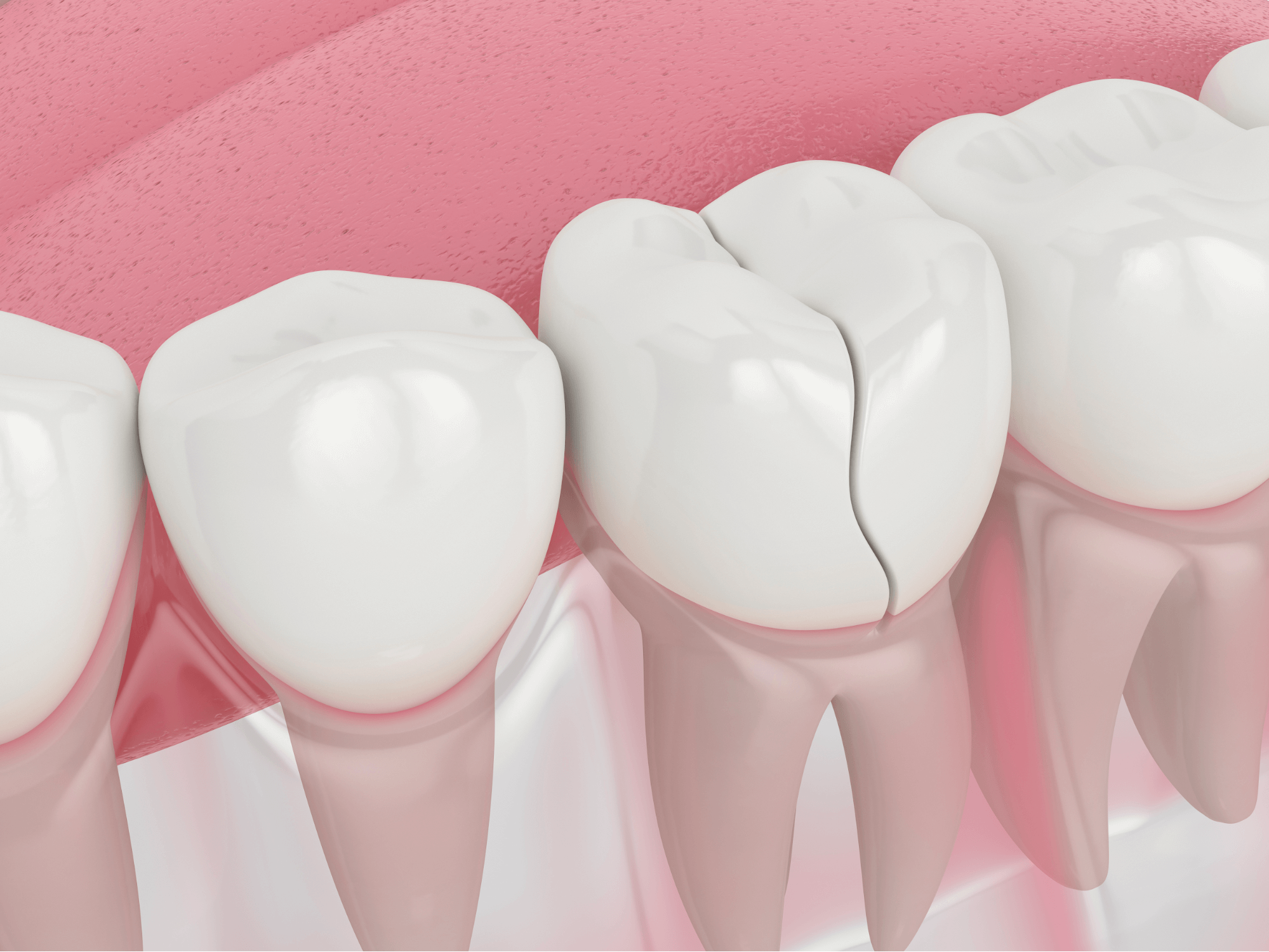Cracked Tooth? When to Call an Emergency Dentist
Cracking a tooth can happen unexpectedly. Biting down on hard foods, accidents, or even grinding your teeth at night can lead to this dental issue. While not all cracks require immediate attention, some may need urgent care to prevent further damage or infection. Here’s how to assess the situation and decide when to call an emergency dentist.
Types of Cracked Teeth
Not all cracks are created equal. Here are the common types and what they mean for your oral health:
Craze Lines: These are small, surface-level cracks in the enamel. They’re common and usually harmless. Most people don’t feel any discomfort from craze lines, and they rarely require treatment.
Fractured Cusp: This type of crack affects the chewing surface of the tooth, often around a filling. While it might not always cause pain, it can weaken the tooth and may need professional attention.
Cracked Tooth: A crack that extends below the gumline can be serious. These cracks may cause sensitivity, pain while chewing, or discomfort when exposed to hot or cold temperatures. Early treatment can save the tooth.
Split Tooth: If a crack divides a tooth into distinct sections, it’s considered a split tooth. This severe condition often requires extraction, though parts of the tooth may sometimes be saved.
Vertical Root Fracture: These cracks start at the root and extend upward. They often show minimal symptoms until the surrounding gum becomes infected. Prompt evaluation is crucial.
Causes of Cracked Teeth
Cracked teeth can occur due to various reasons, including:
Biting Hard Objects: Chewing on ice, hard candy, or unpopped popcorn kernels can lead to cracks.
Injuries: Accidents, falls, or sports injuries can cause dental trauma resulting in cracked teeth.
Teeth Grinding: Chronic grinding (bruxism) puts excessive pressure on teeth and increases the risk of cracks.
Age: As teeth age, they become more brittle and prone to cracks.
Signs You Need Emergency Dental Care
Not all cracked teeth are emergencies. However, you should call an emergency dentist if you experience:
Significant pain or sensitivity
Swelling around the affected tooth or gums
Bleeding from the tooth or surrounding area
A visible crack that’s causing discomfort
Difficulty chewing or biting down
Ignoring these symptoms can lead to further complications, such as infection or tooth loss.
Why You Shouldn’t Delay Treatment
A cracked tooth may seem like a minor issue, but delaying care can lead to:
Infection: Cracks create an opening for bacteria to enter the inner layers of the tooth, potentially leading to an abscess or gum disease.
Tooth Loss: A crack left untreated can worsen, making it impossible to save the tooth.
Increased Pain: Over time, a cracked tooth may become more sensitive and painful, especially when eating or drinking.
Timely treatment ensures better outcomes and can save both your tooth and your budget.
Temporary Steps to Protect a Cracked Tooth
If you’re unable to visit a dentist immediately, follow these steps to protect your tooth:
Rinse Your Mouth: Use warm water to clean the area and remove debris. This reduces the risk of infection and soothes the area.
Avoid Chewing on the Affected Side: Stick to soft foods and chew on the opposite side of your mouth to minimize pressure on the cracked tooth.
Cover the Crack: If the crack is causing pain, over-the-counter dental wax or cement can provide temporary relief. Be careful not to use adhesives not meant for oral use.
Manage Pain: Over-the-counter pain relievers like ibuprofen can reduce discomfort and inflammation. Avoid aspirin, as it can thin the blood and increase bleeding.
Stay Hydrated: Drinking water can help wash away debris and keep your mouth clean.
How an Emergency Dentist Treats a Cracked Tooth
Emergency dentists assess the severity of the crack and recommend appropriate treatment, which may include:
Bonding: Composite resin repairs minor cracks.
Crown Placement: For deeper cracks, a crown can protect and strengthen the tooth.
Root Canal Therapy: If the crack has reached the tooth’s pulp, root canal therapy removes infected tissue and preserves the tooth structure.
Extraction: Severe cracks, such as split teeth or vertical root fractures, may require tooth removal.
When to Call Dr. Molly Rodgers Dental
If you suspect you have a cracked tooth, it’s best to seek professional care as soon as possible. Dr. Molly Rodgers Dental in Edmonton offers same-day appointments for dental emergencies. Our experienced team will assess your tooth, provide immediate relief, and recommend the best treatment to restore your oral health.
With prompt care, you can avoid complications and protect your smile. Call us or book your appointment online to receive expert care when you need it most. Whether it’s a minor crack or a more serious issue, we’re here to help.

